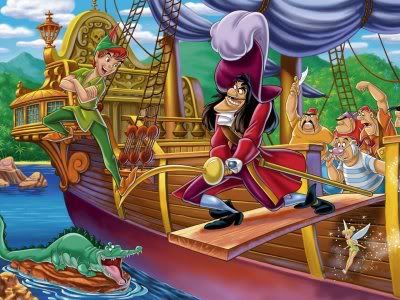
[Getty Images from The Guardian]
I needed an outlet, something to entertain my mind. Since then I have latched on to other passions: magic the gathering, writing, mythology, and generally anything that has to with magick. But I speak about this now to give you a context for my passion for comics. I didn't necessarily grow up with them like a lot of others did. I didn't spend my allowance on them, I didn't get caught up in the '90s craze. I was a kid then, but I still remember loving the X-Men on Fox Kids, playing the N64 Activision Spiderman game, occasionally seeing Bruce Timm's Batman series... no one ever told me to love comics, to follow the various teams, I just did, but none of that really mattered until two years ago when I finally started reading them for myself-- and I know people will hate me for saying this, but my gateway was the New 52.
A lot of people hate DC's relaunch, but I can only say I love it. I picked up several series randomly I guess. I don't remember why I chose them in particular. It could have been the art, stuff I read on the internet, like I said, I don't recall, but I got Snyder's Batman and his Swamp Thing, Azzarello's Wonder Woman, Lemire's Animal Man, John's Justice League and Aquaman, and a Superman comic. In the end, I think I chose right. I ended up dropping John's output and Superman, and stuck with Batman, Wonder Woman, Swamp Thing, and Animal Man. These were my favorites, and I have enjoyed them throughout their run.
Comics are gratifying-- they are a more pure form of art than most give them credit, perhaps in a way a lot of literature lovers will never understand. It isn't only the writer, but the artist, the inker, all these talents coming together to produce a moving image in your head. They can be more cinematic than books, something I struggle with in my writing because I think in images and feelings. They are perhaps more ancient, more inviolate. They are a spirit which grabs you, pulling you into its world... Grant Morrison's book, Supergods, mentions that the different artists interpretations of the character give a tapestry, a history, slaving over the spirit of Batman, Iron Man, or Spiderman, they hand over their soul to a budding image from the collective unconscious, giving it meaning, life, power, something which harkens back to oral tradition, where each storyteller gave his interpretation of a tale each time it was retold. Perhaps, these characters are pure enough, have affected enough lives that they are more real than any one person could ever be. We are birthing universes.
Recently, the PBS Idea Channel had a video on the same topic:
In fact, the author himself may be communicating with a higher authority if he writes from a subconscious state. If his words are clairvoyant enough, the spirit may go on to infect the masses around its original creator. Cultural figures like Superman or Batman have gone through many deviations over the years, and the same holds true for Harry Potter, who was originally created by just one author, but after his ascension in pop culture, thousands, if not millions, have used their own voice to portray him, especially across different medium. Is it possible that man did not create these cultural icons? What if, instead, they were particular powerful gods who wanted to be known in the lower spheres?
In The Secret History of the World, Mark Booth quotes Bob Dylan as saying that to change the age “‘you have to have power and dominion over the spirits. I had it once ... ‘ [Dylan] writes that such individuals are able to ‘... see into the heart of things, the truth of things—not metaphorically either—but really see, like seeing into metal and making it melt, see it for what it is with hard words and vicious insight’” (Booth 36). Booth says of this:
Note that he [Bob Dylan] emphasizes he is not talking metaphorically. He is talking directly and quite literally about a powerful, ancient wisdom, preserved in the secret societies, a wisdom in which the great artists, writers and thinkers who have forged our culture are steeped. At the heart of this wisdom is the belief that the deepest springs of our mental life are also the deepest springs of the physical world, because in the universe of the secret societies all chemistry is psycho-chemistry, and the ways in which the physical content of the universe responds to the human psyche are described by deeper and more powerful laws than the laws of material science (Booth 36)There have been eight films produced from J.K. Rowling’s books, artwork by thousands of artists, and maybe most importantly, the fan fiction littered across the web. Sites like fanfiction.net and MuggleNet allow users to log on and create their own stories with their favorite pop culture properties. There is a wide range of romances (be they between Hermione and Harry, or Harry and Hagrid), rewritings of established books, and further sequels. Harry is not the singular point of one woman’s imagination anymore. He is a lightning rod of our collective dreams and fears. He can be anything to anyone, and his books are not “delimited by the individual who writes alone and silently” (Wisdom of the Mythtellers, 188).
Walter Ong’s ‘secondary orality’ lets the online community continue Harry’s adventures, though they may be apocryphal. We can compare this to the authoritative canon of the Bible, which was used to try and squash the writings of the Gnostics and other sects at the first Council of Nicaea in 325 AD. The internet, in its own perverse way, is the voice of humanity—it is so alien, so intangible and logical, but it is also more human than any one person could be. It is our collective emotions, prejudices, logos, and mythos; it is everything great about us, but also everything wrong with us.
Grant Morrison, in his book about super heroes, Super Gods, says characters like Superman and Batman did not exist in a:
Close continua with beginnings, middles, and ends; the fictional ‘universe’ [of DC and Marvel] ran on certain repeating rules but could essentially change and develop beyond the intention of its creators. It was an evolving, learning, cybernetic system that could reproduce itself into the future using new generations of creators who would be attracted like worker bees to serve and renew the universe (Morrison 117)(His emphasis, not mine.) He goes onto to compare the characters to something like twelve-bar blues or a chord progression. Different writers could “play very different music. This meant interesting work could be done by writers and artists who knew what they were getting into and were happy to add their own little square to a vast patchwork quilt of stories that would outlast their lives” (Morrison 118).
Myths, memes, and serials are similar to the concept of ‘tulpas’ created by Tibetan masters (‘thought-beings’). They can possess an age, live past their creators, and become something bigger than any one man or woman. The characters we create and adore are like the gods of old. They descend from the astral spheres and inhabit a person, speak through them, become them. The voices inside their head are not their own, but the gods’ divine thoughts. Sean Kane relates that myth-telling, like all communication, is a performance. We dance with each other without realizing it. In this way, we are God pretending to be human, a rabbit, or a bush because in the end, it is all an act.

Myth is everywhere. It is in the trees. In the rocks. In the rivers. In the sky, and especially in the comic book shop. It is alive, almost as if the polyphonic voices of nature (the spirits) were coming together to craft a story. Myth is not static. It changes every time someone retells it. This is similar to how memory works, in that each time a person relives a memory, they mismember it subtly. It morphs to fit the arch they believe themselves to be on and because of this, a myth will die away if it is no longer relevant to the group of people which it is associated, just like we bury a memory which no longer fits in with our story.
In contrast to characters being accepted as gods, Alison Lurie, in her article “Who is Peter Pan?” opines that instead of their works, writers are often compared to the higher authorities:
They create men and women and children who seem to us to be real. But unlike gods, these writers do not control the lives of their most famous creations. As time passes, their tales are told and retold. Writers and dramatists and film-makers kidnap famous characters like Romeo and Juliet, Sherlocke Holmes, and Superman; they change the characters’ ages and appearance, the progress and endings of their stories, and even their meanings (Lurie).Like I discussed above, characters used in perpetuity by a host of different media and interpreters develop a life of their own. Did Jerry Siegel and Joe Shuster foresee a modern Superman fighting Supergirl and the villains of Wildstorm inside the pages of the New 52? No, it would not only be improbable but impossible. Lurie brings up a good point—often when we perceive the author, we think of him or her as a god, but the the real question may be who is controlling who? Many authors will tell you there comes a point when their characters start to possess them. They cease to be writing about them. Their creations are now writing through them. Grant Morrison wonders in his aforementioned book “if ficto-scientists of the future might finally locate this theological point where a story becomes sufficiently complex to begin its own form of calculation, and even to become in some way self-aware. Perhaps that had already happened” (Morrison 119).

It was Bob Dylan who talked of the spirits’ (stories, images, and characters) ability to mesmerize an age and the artist himself. It is almost as if the great gods are worming their way into the lower celestial spheres by using clumsy talismans. Booth writes of the gods, “If you believe that ideas are more real than objects, as the ancients did, collective hallucinations are, of course, much easier to accept than if you believe in a matter-before-mind universe—in which case they are almost impossible to explain. In this history gods and spirits control the material world and exercise power over it” (Booth 59). Where before humanity was in direct communication with the gods, now they are distant, and the only way they can be contacted is through perverse means, and reading and writing are just a few of the ways.
Inside a book or comic, a person is free to commune with aspects of themselves that are hidden away or buried. Books, like any good talisman, have been burned for being evil. They can inspire great evil or great kindness. Literate society has not killed humanity’s great mythos, it has only changed or transformed it. It has moved toward the Occult, to the Orient, to serials and cultural icons, and finally to fantasy and outerspace. Myth and story, once recognized as a great societal linker, bringing together the young and the old and instructing on the proper ways of life, has died. It has moved into the hands of the few. Capitalism has led to the commoditization of our cultural icons, and it has done this without the masses realizing what they have lost.
These days, I continue to pick up Batman (along with Batman and ...), Soule's Swamp Thing (even better than Snyder's), Animal Man (though this month is its last issue), Wonder Woman, Superman and Wonder Woman (I love Charles Soule!), and some of the Forever Evil tie-ins. Books I have heard that are worth reading from DC include Lemire's Green Arrow, Soule's Red Lanterns, and Snyder's Superman Unchained-- and these three tend to be my favorite authors from DC. I have yet to delve into Marvel because as my uncle put it, you know what you are buying when you pick up a DC book, but apparently Bendis' X-Men series are pretty awesome, as well as Hawkeye, and a few others I read about on CBR and Bleeding Cool. These books don't even take into the account the great stuff going on in Vertigo, Image, Dark Horse, and a menagerie of other outlets-- it is a great time to be a comic book fan, especially with Vaughan's Saga.
Like I said at the beginning, comics mean a lot to me. They were another world I could hide away in during a dark time. I felt like I had nobody, like I could talk to nobody about the problems I had, the things I felt. But Batman was always there, in all his righteous rage and his tenaciousness. Swamp Thing and Animal were fighting against the rot. Wonder Woman was meeting her family for the first time. There is that feeling when I was leaving my home to grab a few books or novels from the local Hastings or Barnes and Noble-- it felt like everything was going to be okay for awhile, like I could manage the next few hours. I know things will not always go swimmingly, and bad things will always happen, but I know my friends will always be there, and I count these heroes as friends.

What are the icons of the past? Can they not be replaced as Zeus was to Jupiter? Who needs Hercules when wehave our Schwarzeneggers and our Hulks? And what business do these ancient things have telling us the "proper" way to live?
ReplyDeleteSome have referred to comic heroes as modern gods. Hercules IS the Hulk. He is a spirit which will constantly be rebirthed. They exist inside and outside us.
ReplyDeleteIf you choose to believe that kind of lunatic thinking of course.
ReplyDelete